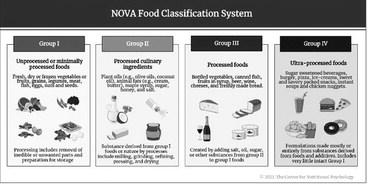LETTER TO THE EDITOR Blood Drive
The Colby VFW post 2227 and Auxiliary hosted a blood drive May 2 with the Versiti team. Once again, we met our goal. The goal was at 22 donations and we slid by with 23! We had 19 whole blood donations and four dual red donations. Two were first time donors. With the donations we collected 69 products. Great job everyone!
We look forward to seeing you all at our next blood drive. The Versiti team will be back in Colby, August 14, from 1 to 6 p.m. and August 15, from 9 a.m to 2 p.m. This is a memorial blood drive for Denis Woik.
Thank you, Lin Mueller Coordinator
To the Editor: As healthcare professionals, we see the effects of poor dental health every day — especially in children, seniors, and families who lack access to regular dental care. That’s why we strongly support keeping fluoride in community water systems.
Water fluoridation is one of the most successful public health measures of the last century. It reduces tooth decay by about 25%, lowers the need for fillings and extractions, and helps prevent serious oral infections — all while being safe and cost-effective.
We understand some residents have questions or concerns about fluoride, and it’s good to ask questions about our health. That means you care about health, and we respect that. If you have questions regarding fluoride, please reach out to your local dental and/or medical providers.
At recommended levels (0.7 mg/L), fluoride in drinking water is safe. It is endorsed by the Wisconsin Dental Association, Wisconsin Oral Health Coalition, American Dental Association, American Academy of Pediatrics, and more — because the evidence and science supports it. The 0.7 mg/L level is based on decades of research. Fluoride is only harmful at much higher levels (>4.0 mg/L). Public water systems are tightly regulated to stay well below unsafe levels.
Nutrients are added to food to keep people healthy, such as putting Vitamin D in milk or iodine in salt. Adding fluoride to water works the same way. If we take it out, more people, especially children and low-income families, could end up with more cavities and worse dental health. Fluoride especially helps those who need it the most: children, people on fixed incomes, and residents who don’t have dental insurance. It protects everyone, regardless of background or circumstance, just by drinking tap water. Removing fluoride would not only put our most vulnerable neighbors at greater risk of dental disease, but it would also increase long-term health costs for families and the city.
Tooth decay continues to be a significant health challenge among students in the Loyal School District.
2023-2024 School Year Clark County Seal-A-Smile Student Participants: 104 Students with Tooth Decay: 29% 2024-2025 School Year* Clark County Seal-A-Smile Student Participants: 67 Students with Tooth Decay: 22% *Data for the school year has not been finalized.
The importance of preventive oral health measures, including water fluoridation, is clearly demonstrated by what happened in Canada: In 2011, Calgary, Canada made the decision to remove fluoride from its public water supply.
Between 2011 and 2018, hospitalizations of children for dental infections requiring IV antibiotics at Alberta Children’s Hospital increased by 700%. Most of these cases involved children under the age of 5—highlighting the vulnerability of young children to dental decay when fluoride is not present.
Recognizing the severity of the issue, Calgary voters elected to reinstate water fluoridation.
Let’s keep fluoride in our water, because it’s the right thing to do for the health of our entire community.
Brittany Mews
RN BSN-Health Officer/Director-Clark County Health Department Clark County Seal-A-Smile Dr. Maryann Forsell
DMD, MPH-Family Health Center Neillsville Dental Center
Jordyn Pieper
PA-C-Marshfield Clinic-Neillsville Ashley Kaiser
PA-C-Marshfield Clinic-Colby-Abbotsford
Heidi Allen
RDH




